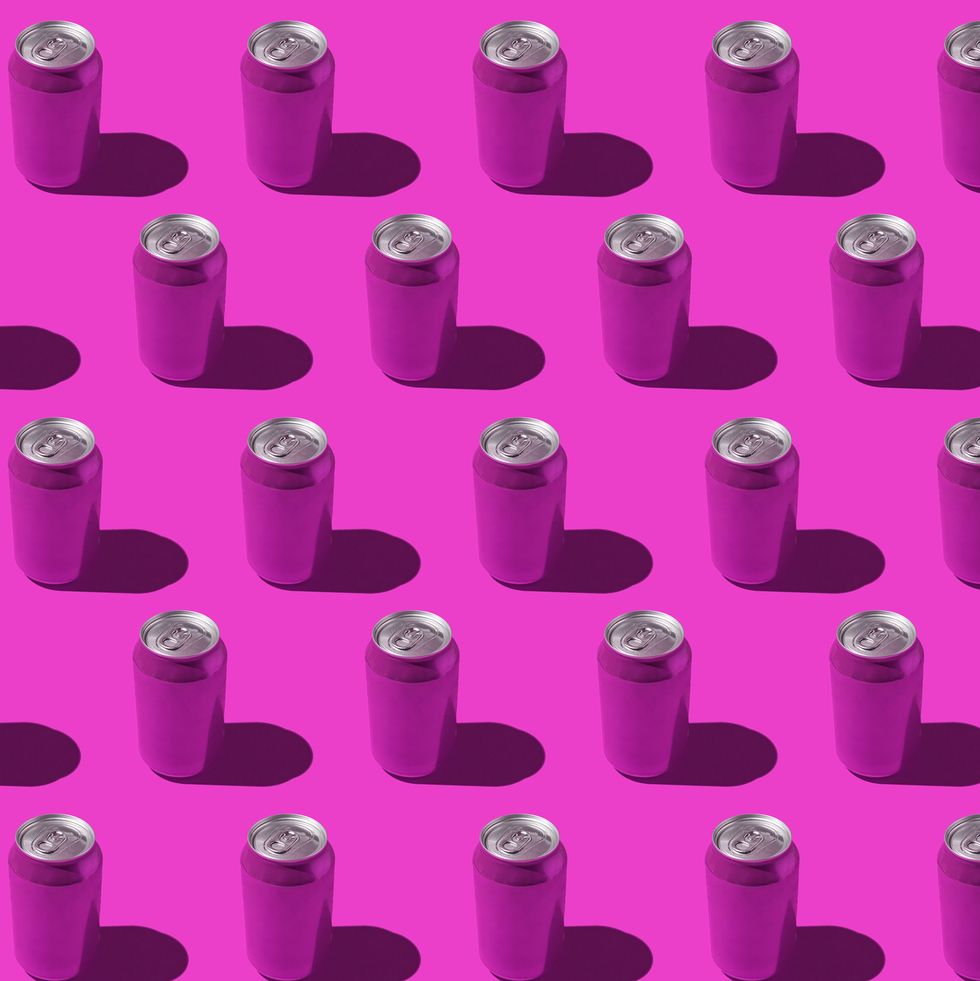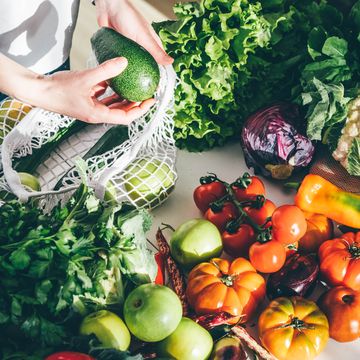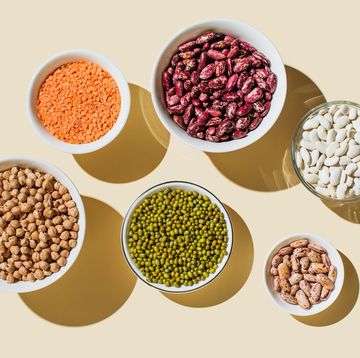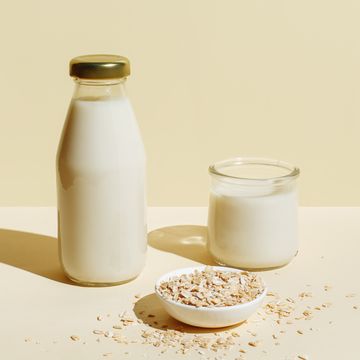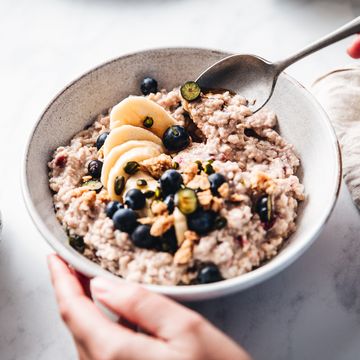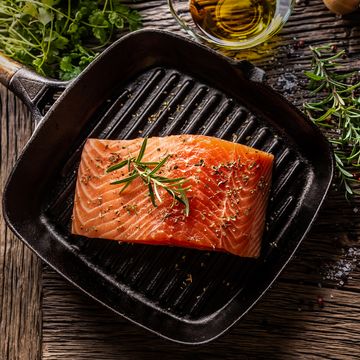There's nothing like popping open a can of your favorite fizzy drink. If you're a soda lover or seltzer loyal, you've likely heard about the new kid on the block: soda with prebiotics. These "functional" beverages come in a variety of unique flavors with vibrant packaging and lofty health claims. But is prebiotic soda actually good for you and worth the hype?
This question is front and center right now, since one popular brand, Poppi, is being sued in California over its gut health claims. "The complaint alleges Poppi sodas only contain two grams of prebiotic fiber, which means 'a consumer would need to drink more than four Poppi sodas in a day to realize any potential health benefits,'" reports USA Today. With up to 5g of sugar per can, according to the brand's website, four cans could mean as much as 20g of sugar. The company issued a statement calling the lawsuit baseless and saying it would defend itself.
What is prebiotic soda?
"Prebiotic soda is a carbonated beverage that contains prebiotics within to help support your microbiome, or gut," says Registered Dietitian Bonnie Taub-Dix, RDN, creator of BetterThanDieting.com and author of Read It Before You Eat It: Taking You from Label to Table. These sodas tend to come in flavors that mimic popular soft drinks (think cola, cherry lime, orange soda and more) and oftentimes are lower in added sugar than traditional soda.
So what exactly are prebiotics? Think of them as food for the good bacteria in your gut. In simple terms, prebiotics feed or fuel the beneficial microbes that live on or in us. We can't digest them, but these beneficial microbes can positively impact the gut environment and overall health. There is no adequate intake level or daily value for prebiotics, but the International Scientific Association for Probiotics and Prebiotics (ISAPP) recommends at least 5 grams of prebiotics daily. (A can of Poppi, according to its label, contains 2 grams of fiber, which the company says comes from agave inulin, and it also contains apple cider vinegar, which has prebiotics as well.)
Prebiotics can be found naturally in many foods, including chicory root, garlic, leeks, onions, asparagus, Jerusalem artichokes, bananas and sweet potatoes, amongst others. The prebiotic sodas sitting on the shelf at the supermarket aren't harnessing the power of the onion, but brands like Poppi use apple cider vinegar and agave inulin as their prebiotic source, whereas others, like Olipop, use a combination of sources such as cassava root and chicory root.
Does prebiotic soda offer any benefits?
According to ISAPP, prebiotics have the potential to improve digestive function, support the body's natural defenses and even improve mineral absorption. "Prebiotics known as oligosaccharides, a type of carbohydrate compound which is a fiber, have been associated with reducing the risk for heart disease, lowering cholesterol levels, decreasing risk for constipation and maintaining gut health," says Registered Dietitian Keri Gans, MS, RDN, CDN, author of The Small Change Diet and host of the podcast The Keri Report. "One specific type of prebiotic called galactooligosaccharide (GOS) has been shown to help reduce complaints of gas, bloating and abdominal pain, as well as to decrease anxiety symptoms in healthy young adults."
Prebiotics help to fuel your gut bacteria, and Taub-Dix says that a healthy environment for your bacteria helps to support a healthy immune system. If you're one of the 95% of American adults who don't get enough fiber in their diet (about 25 grams/day for women), a prebiotic soda may help you fill the gap. Both Taub-Dix and Gans say that getting your fiber through whole foods is preferred, but one particular brand of prebiotic soda, Olipop, can supply upwards of 9 grams of fiber per can. Although it may seem that prebiotics and fiber are the same, it's important to note that there is a distinction between the two: Most prebiotics are dietary fibers, but not all dietary fibers are prebiotics.
But probably the biggest benefit and lure for many people is that prebiotic soda tends to taste similar to traditional soda without all of the added sugar. "A prebiotic soda may be a good alternative for someone who is currently a regular soda drinker and is trying to cut back on added sugar," says Gans. "For example, one can of regular soda typically has 38 grams of added sugar, whereas a prebiotic soda, such as Olipop, has only 2 to 5 grams." And if the prebiotic soda is free from artificial ingredients and still has little to no added sugar, Taub-Dix adds that it can perhaps be relied upon as a source of hydration.
Does prebiotic soda have any side effects?
"One thing to remember is that more fiber is not beneficial for everyone due to certain medical conditions," says Gans. Given that prebiotic soda may be a rich source of fiber, it may not be an ideal choice for individuals with a history of irritable bowel syndrome and other gastrointestinal diseases. "If someone is presently consuming a low-fiber diet, they need to increase their fiber slowly," she adds, "otherwise they may experience negative side effects, such as gas, bloating and loose stools."
What's more, liquid fiber can be absorbed rather quickly, and many prebiotic soda options on the market also contain sugar substitutes that can be difficult to digest for certain individuals. "Although some of these beverages may have benefits, it’s important to read food labels to see what you’re really getting. Consider the sugar content and the addition of artificial sweeteners, coloring agents and so on," says Taub-Dix. "The addition of sugar alcohols could cause gastrointestinal upset, and if you combine that with the bubbles of carbonation, you might need to find a way to beat the bloat."
Does prebiotic soda make you poop?
All that fiber and a hefty dose of prebiotics will likely get things moving, but it may not have the same effect on every body. "Prebiotic soda includes fiber, and fiber is known to help add bulk to one’s stool and keep you regular," says Gans. "But we are all individuals, and what may affect one person may not affect another."
While prebiotics may reduce occasional constipation, some may find that they can bring up other issues. "Prebiotics are generally safe, but those who are sensitive or those who consume quantities beyond their own tolerance could experience gas, bloat, gastrointestinal discomfort and, in some cases, diarrhea," Taub-Dix adds.
Bottom line
If you're looking to incorporate prebiotic soda into your diet or to swap out a traditional sugary beverage for a prebiotic soda, Gans says that it's likely that you could safely consume one can per day, depending on your tolerance to fiber. But if you're not used to eating (or drinking) high-fiber items, incorporate prebiotic soda gradually and in moderation to allow your gut to adapt.
Taub-Dix recommends looking for lower-sugar options and ones that minimize the addition of artificial sweeteners and coloring agents. Both dietitians emphasize the importance of getting fiber from whole foods that provide other benefits as well, including fresh produce, 100% whole grains, legumes, nuts and seeds, rather than solely from prebiotic soda.
Stefani (she/her) is a registered dietitian, a NASM-certified personal trainer and the director of the Good Housekeeping Institute Nutrition Lab, where she handles all nutrition-related content, testing and evaluation. She holds a bachelor’s degree in nutritional sciences from Pennsylvania State University and a master’s degree in clinical nutrition from NYU. She is also Good Housekeeping’s on-staff fitness and exercise expert. Stefani is dedicated to providing readers with evidence-based content to encourage informed food choices and healthy living. She is an avid CrossFitter and a passionate home cook who loves spending time with her big fit Greek family.


